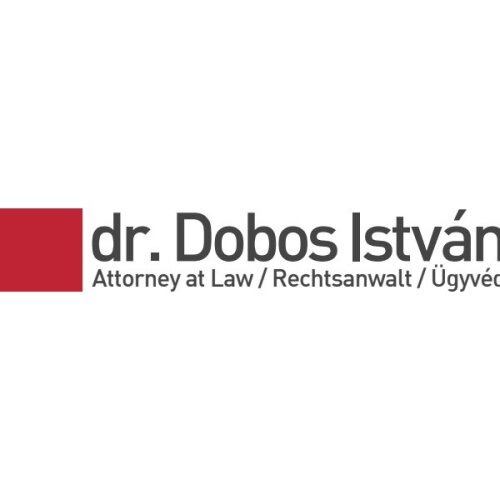Best Renewable & Alternative Energy Lawyers in Budapest
Share your needs with us, get contacted by law firms.
Free. Takes 2 min.
List of the best lawyers in Budapest, Hungary
About Renewable & Alternative Energy Law in Budapest, Hungary
Renewable and alternative energy law in Budapest, Hungary, covers the legal landscape surrounding the development, use, and regulation of energy sources that do not rely on fossil fuels. This includes solar, wind, hydroelectric, biomass, and other technologies designed to reduce environmental impact and carbon emissions. As Hungary and its capital Budapest align with European Union (EU) directives and global sustainability goals, laws and regulations are continuously evolving to encourage clean energy production, grid integration, and investment while safeguarding consumers and the environment. Legal frameworks address everything from licensing to tariff structures, environmental impact assessments, permits, incentives, and dispute resolution.
Why You May Need a Lawyer
The renewable and alternative energy sector involves complex legal and regulatory issues affecting individuals, businesses, investors, and developers. Engaging a lawyer with expertise in this field can be essential in scenarios such as the following:
- Obtaining permits and approvals for solar panels, wind turbines, or bioenergy systems
- Navigating investment agreements or joint ventures in renewable energy projects
- Complying with environmental impact assessment requirements
- Understanding applicable subsidies, incentives, and tariffs for renewable energy
- Negotiating power purchase agreements (PPAs)
- Interfacing with local authorities or utility companies regarding grid connection and energy distribution
- Resolving disputes related to land use, intellectual property, or contractual obligations
- Ensuring compliance with both Hungarian and European Union laws governing renewable energy
Local Laws Overview
Hungarian laws governing renewable and alternative energy are influenced by national objectives, EU directives, and regional considerations unique to Budapest. Key aspects include:
- Licensing and Permitting: The production and distribution of renewable energy in Budapest may require permits from the Hungarian Energy and Public Utility Regulatory Authority (MEKH) and compliance with municipal regulations.
- Subsidies & Incentives: The Hungarian government and EU offer various incentives such as feed-in tariffs, grants, and tax advantages to promote alternatives to traditional energy sources.
- Grid Integration: Regulations govern how renewable energy sources are connected and supplied to the national electricity grid, with technical and administrative rules that must be met.
- Environmental Protection: Projects must comply with environmental protection laws and may require environmental impact assessments, particularly for larger installations.
- Land Use: Local building codes and zoning laws impact where and how renewable energy systems can be established, especially in urban Budapest.
- Consumer Protection: There are laws to ensure fair pricing, transparent contracts, and reliable service for consumers of renewable energy.
Frequently Asked Questions
What types of renewable energy are most commonly used in Budapest?
Solar energy, geothermal heating, and biomass are the most prevalent renewable energy sources in Budapest, although wind energy projects are more common in rural parts of Hungary.
Can individuals install solar panels on their homes in Budapest?
Yes, individuals may install solar panels on residential properties, but must comply with local permitting, grid connection, and building code requirements.
What approvals are needed for a renewable energy project?
Depending on the project size and type, you may need permits from local authorities, the Hungarian Energy and Public Utility Regulatory Authority, and possibly an environmental impact assessment.
Are there financial incentives for renewable energy investments?
Yes, various subsidies, grants, low-interest loans, and feed-in tariffs are available for certain projects, often co-financed by the EU and Hungarian government.
How are renewable energy projects regulated in Budapest?
They are regulated by national energy laws, Budapest municipal regulations, and must also comply with relevant EU directives.
What should I do if my renewable energy application is denied?
Legal representation can help you appeal the decision, ensure procedural fairness, and negotiate with authorities or utilities.
Are there restrictions on building renewable energy systems in protected historical zones?
Yes, historical and heritage areas have additional restrictions that may limit or modify the type or placement of renewable energy installations.
How do power purchase agreements work in Hungary?
These are contracts between energy producers and buyers that set the price and terms for renewable energy supply, subject to regulatory oversight and market conditions.
What are the main risks involved in renewable energy investments?
Main risks include regulatory changes, fluctuating tariffs, project delays, and technical integration with the electricity grid.
Where can I find up-to-date legal requirements for renewable energy in Budapest?
The Hungarian Energy and Public Utility Regulatory Authority website and the Official Gazette of Hungary are primary sources, or you can consult with specialized legal professionals.
Additional Resources
For more information or support relating to renewable and alternative energy law in Budapest, you may find the following resources useful:
- Hungarian Energy and Public Utility Regulatory Authority (MEKH)
- Ministry for Energy Hungary
- Budapest Municipality Environmental and Energy Office
- National Chamber of Hungarian Renewable Energy Producers
- Hungarian Energy and Public Utility Regulatory Authority's official website
- European Commission Directorate-General for Energy
- Environmental Protection and Nature Conservation Inspectorate of Budapest
Next Steps
If you need legal assistance in renewable and alternative energy matters in Budapest, consider the following steps:
- Assess your specific need, whether related to permitting, compliance, investment, or dispute resolution
- Gather all relevant documents such as project plans, contracts, government correspondence, and regulatory notices
- Consult with a qualified lawyer who specializes in renewable and alternative energy law and has experience with Budapest regulations
- Request an initial consultation to discuss your case, potential strategies, and legal costs
- Stay informed about changing laws and policies that may impact your project or interests
- Take advantage of governmental and industry resources for updated guidance and support
A knowledgeable lawyer can help you navigate the complex legal requirements, ensure compliance, maximize available incentives, and protect your interests in Hungary’s evolving renewable energy landscape.
Lawzana helps you find the best lawyers and law firms in Budapest through a curated and pre-screened list of qualified legal professionals. Our platform offers rankings and detailed profiles of attorneys and law firms, allowing you to compare based on practice areas, including Renewable & Alternative Energy, experience, and client feedback.
Each profile includes a description of the firm's areas of practice, client reviews, team members and partners, year of establishment, spoken languages, office locations, contact information, social media presence, and any published articles or resources. Most firms on our platform speak English and are experienced in both local and international legal matters.
Get a quote from top-rated law firms in Budapest, Hungary — quickly, securely, and without unnecessary hassle.
Disclaimer:
The information provided on this page is for general informational purposes only and does not constitute legal advice. While we strive to ensure the accuracy and relevance of the content, legal information may change over time, and interpretations of the law can vary. You should always consult with a qualified legal professional for advice specific to your situation.
We disclaim all liability for actions taken or not taken based on the content of this page. If you believe any information is incorrect or outdated, please contact us, and we will review and update it where appropriate.

















